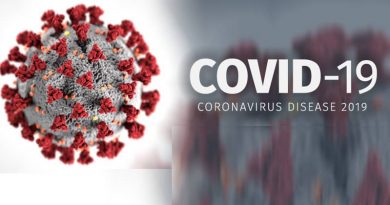More than 67% of hypertensive patients in Africa are not on treatment
According to a WHO analysis, less than 33% of hypertension patients in Africa are on therapy, and only around 12% have the potentially fatal illness under control.
Globally, approximately 21% of persons over the age of 30 have hypertension under control, with 42% taking medication to treat the illness. Hypertension is a key risk factor for stroke and heart attack, the two cardiovascular diseases that account for the majority of chronic illness deaths in Africa.
Diagnosis, management, and control of hypertension in Africa are hampered by low awareness of the problem, restricted access to health services, overcrowded health systems, health workforce challenges, a shortage of inexpensive medicines, and noncompliance with drug regimens. Rising obesity rates, poor lifestyles, and a lack of patient education all contribute to the problem.
To address this major health concern, increased investment in health services to detect and manage the illness is required. “It is also critical to increase hypertension awareness and promote measures to address modifiable risk factors,” said Dr Matshidiso Moeti, WHO Regional Director for Africa. “Across the region, we’re assisting countries in anchoring initiatives aimed at decentralizing noncommunicable disease diagnosis, treatment, and care in order to improve well-being and reduce deaths.”
WHO has prioritized its collaboration with governments, partners, and civil society to combat hypertension and other noncommunicable diseases. Twenty-seven countries have received assistance from WHO-PEN to decentralize the management of noncommunicable illnesses, including hypertension, at the basic health care level. Screening and diagnosis, treatment, lifestyle change, patient education, and self-management are all available services.
Building on WHO-PEN, African countries approved the PEN-Plus plan in 2022. To reduce mortality, this strategy intends to strengthen the capacity of district hospitals and other first-level referral facilities for early diagnosis and subsequent therapy of severe noncommunicable diseases, particularly complex hypertension.
In Liberia, Malawi, and Rwanda, the PEN-Plus method has resulted in a considerable rise in the number of people receiving treatment for severe chronic diseases.
WHO is also collaborating with partner organizations to assist African countries in developing and implementing regulatory standards and fiscal measures to encourage healthy meals, physical exercise, and other good behavioral changes. Tobacco and alcohol use, as well as being overweight or obese, all increase the risk of hypertension.
Although focused measures are yielding results, more efforts are required to reduce Africa’s high burden of noncommunicable diseases, according to Dr. Moeti. “Primary health care facilities, which are on the front lines of health care and are therefore ideally positioned to provide health promotion and prevention services, must be fully supported and strengthened.



